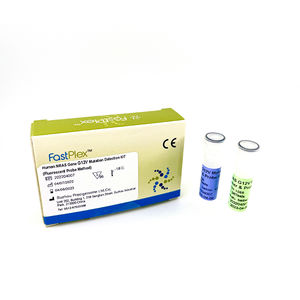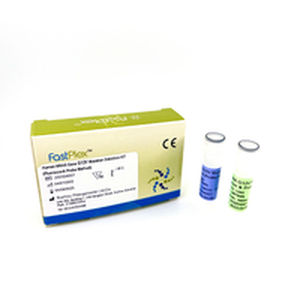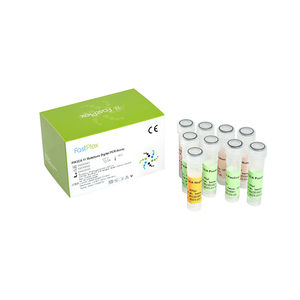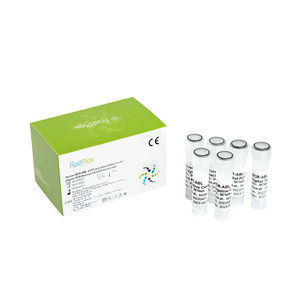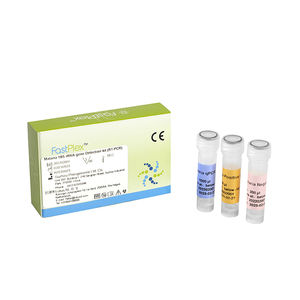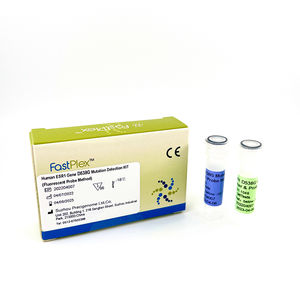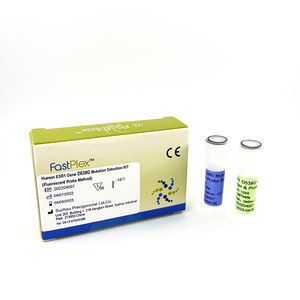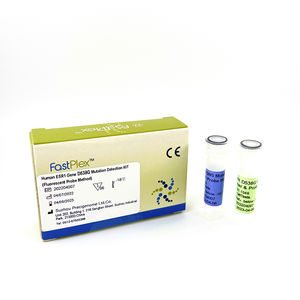
- Laboratory
- Laboratory medicine
- Cancer test kit
- RainSure Scientific

- Products
- Catalogs
- News & Trends
- Exhibitions
KRAS mutation detection kit 3.02.01.40 seriesfor tumour detectionplasmacell
Add to favorites
Compare this product
Characteristics
- Applications
- for tumour detection
- Tested parameter
- for KRAS mutations
- Sample type
- plasma, cell, tissue
- Analysis mode
- molecular
Description
The assays (primers and probes only) are designed to detect the KRAS (V-Ki-ras2 Kirsten rat sarcoma viral oncogene homolog) mutations in tissue DNA and cfDNA from plasma.
The K-ras gene (K-ras, p21) family consists of three genes associated with human tumors: H-ras, K-ras, and N-ras, located on chromosomes 11, 12, and 1, respectively. The K-ras gene, also known as the p21 gene, encodes a 21kD Ras protein. Among the Ras genes, K-Ras has the greatest impact on human cancers and functions as a molecular switch. In its normal state, it controls the pathway regulating cell growth. However, when it is mutated, it causes continuous cell growth and inhibits self-destruction. K-ras also plays a role in intracellular signal transmission. Mutations in the K-ras gene result in its permanent activation, preventing the production of normal Ras protein, which leads to disrupted intracellular signaling, uncontrolled cell proliferation, and the development of cancer.
Approximately 30% of human malignant tumors are associated with Ras gene mutations, and mutated Ras proteins are often in an active state. K-ras mutations are commonly found in leukemia, lung cancer, rectal cancer, and pancreatic cancer, with mutations occurring in 30%-35% of rectal cancers. Around 96% of KRAS gene mutations occur at codons 12 and 13 of exon 2, and KRAS G12D mutations account for approximately 17-18%.
Related Searches
- Assay kit
- Solution reagent kit
- Blood assay kit
- Molecular biology reagent kit
- Serum assay kit
- Plasma assay kit
- Infectious disease detection kit
- Laboratory reagent kit
- Molecular test kit
- Enzyme reagent kit
- Clinical assay kit
- PCR reagent kit
- Oncology test kit
- Cell assay kit
- Tissue detection kit
- Genetic test kit
- Oncology test kit
- RT-PCR detection kit
- Taq DNA polymerase reagent kit
- Hematology test kit
*Prices are pre-tax. They exclude delivery charges and customs duties and do not include additional charges for installation or activation options. Prices are indicative only and may vary by country, with changes to the cost of raw materials and exchange rates.


